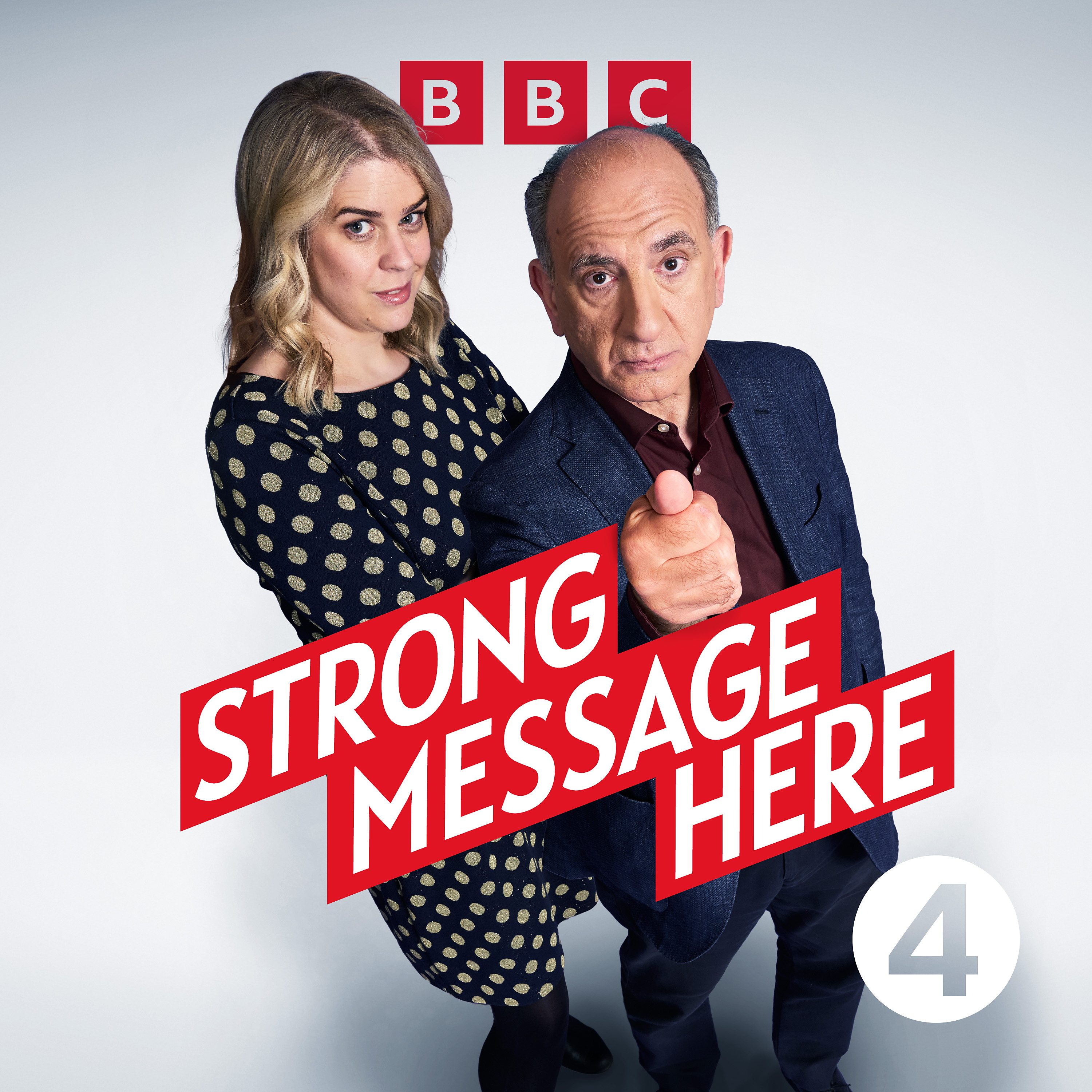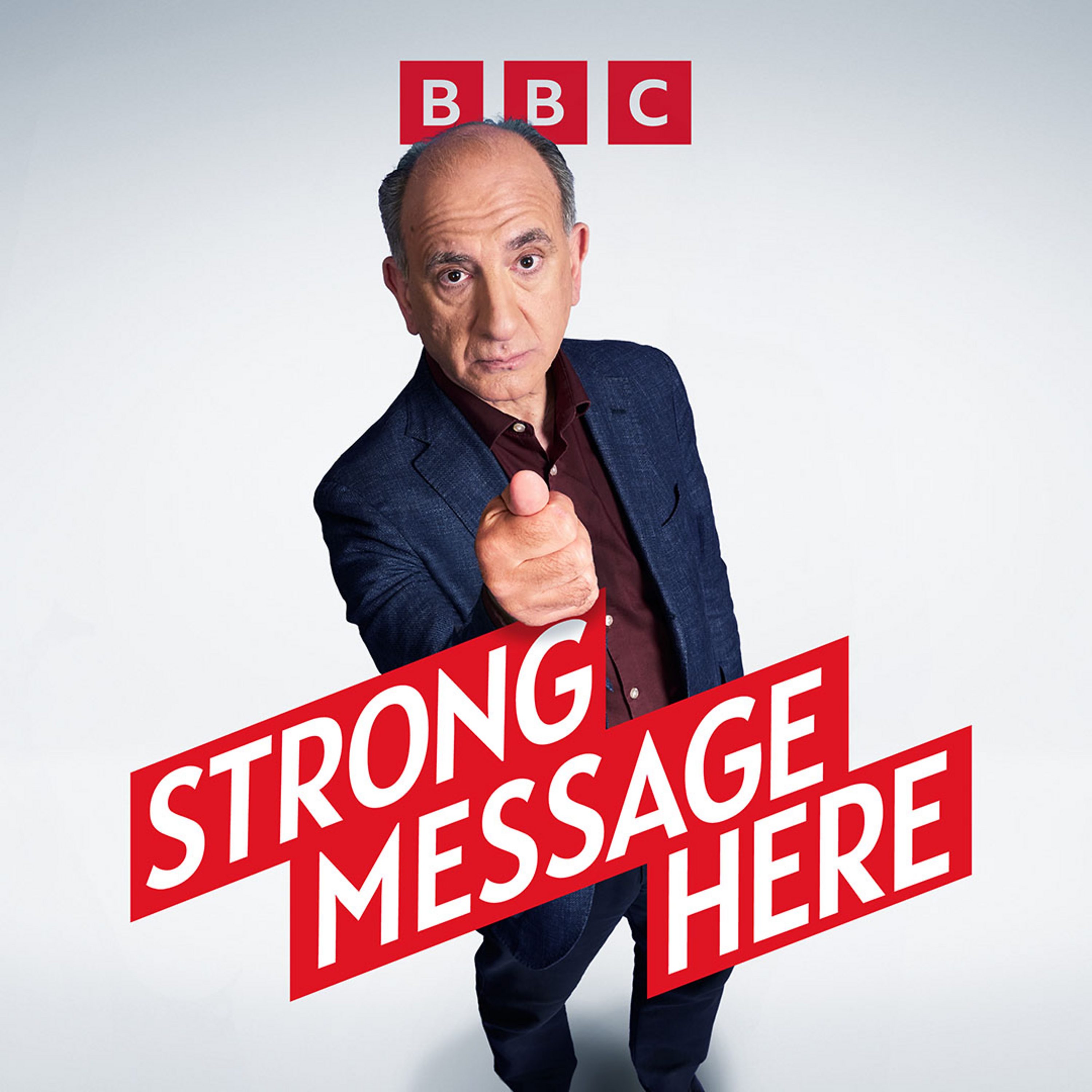Everybody's Miserable
Comedy writer Armando Iannucci and journalist Helen Lewis decode the utterly baffling world of political language.
Farage says everybody is miserable, Trump says everything is a 'disaster', and Liz Truss chimed in saying Britain is a 'failed state', so Helen and Armando are trying to find out why those who claim to be patriots are keen to talk the country down. And why Starmer and Reeves' downbeat language has had real-life consequences.
Listen to Strong Message Here every Thursday at 9.45am on Radio 4 and then head straight to BBC Sounds for an extended episode.
Have you stumbled upon any perplexing political phrases you need Helen and Armando to decode? Email them to us at strongmessagehere@bbc.co.uk
Sound Editing by Charlie Brandon-King
Production Coordinator - Katie Baum
Executive Producer - Pete Strauss
Produced by Gwyn Rhys Davies. A BBC Studios Audio production for Radio 4.
An EcoAudio Certified Production.
Press play and read along
Transcript
Transcript is processing—check back soon.

